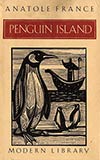Anatole France
| Full Name: | Jacques Anatole-Francois Thibault |
| Born: | April 16, 1844 Paris, France |
| Died: | October 12, 1924 Sain-Cry-sur-loire, France |
| Occupation: | Author |
| Nationality: | French |
| Links: |
|
Biography
Anatole France was a French poet, journalist, and novelist. He was born in Paris, and died in Saint-Cyr-sur-Loire. He was a successful novelist, with several best-sellers. Ironic and skeptical, he was considered in his day the ideal French man of letters. He was a member of the Académie française, and won the 1921 Nobel Prize for Literature "in recognition of his brilliant literary achievements, characterized as they are by a nobility of style, a profound human sympathy, grace, and a true Gallic temperament".
Anatole France began his career as a poet and a journalist. In 1869, Le Parnasse Contemporain published one of his poems, La Part de Madeleine. In 1875, he sat on the committee which was in charge of the third Parnasse Contemporain compilation. As a journalist, from 1867, he wrote many articles and notices. He became famous with the novel Le Crime de Sylvestre Bonnard (1881). Its protagonist, skeptical old scholar Sylvester Bonnard, embodied France's own personality. The novel was praised for its elegant prose and won him a prize from the Académie française.
In La Rotisserie de la Reine Pedauque (1893) Anatole France ridiculed belief in the occult; and in Les Opinions de Jerome Coignard (1893), France captured the atmosphere of the fin de siècle. France was elected to the Académie française in 1896.
France took an important part in the Dreyfus Affair. He signed Émile Zola's manifesto supporting Alfred Dreyfus, a Jewish army officer who had been falsely convicted of espionage. France wrote about the affair in his 1901 novel Monsieur Bergeret.
France's later works include L'Île des Pingouins (1908) which satirizes human nature by depicting the transformation of penguins into humans – after the animals have been baptized by mistake by the nearsighted Abbot Mael. Les dieux ont soif (1912) is a novel, set in Paris during the French Revolution, about a true-believing follower of Robespierre and his contribution to the bloody events of the Reign of Terror of 1793-94. It is a wake-up call against political and ideological fanaticism and explores various other philosophical approaches to the events of the time. La Revolte des Anges (1914) is often considered France's most profound novel. It tells the story of Arcade, the guardian angel of Maurice d'Esparvieu. Arcade falls in love, joins the revolutionary movement of angels, and towards the end realizes that the overthrow of God is meaningless unless "in ourselves and in ourselves alone we attack and destroy Ialdabaoth."
Works in the WWEnd Database
|
|
|
|
|
|||||||||||||||



















 Full Details
Full Details








